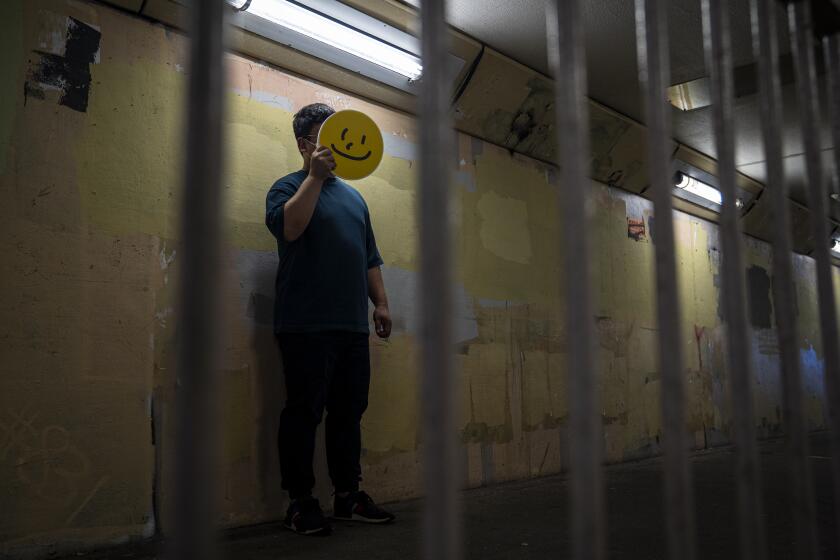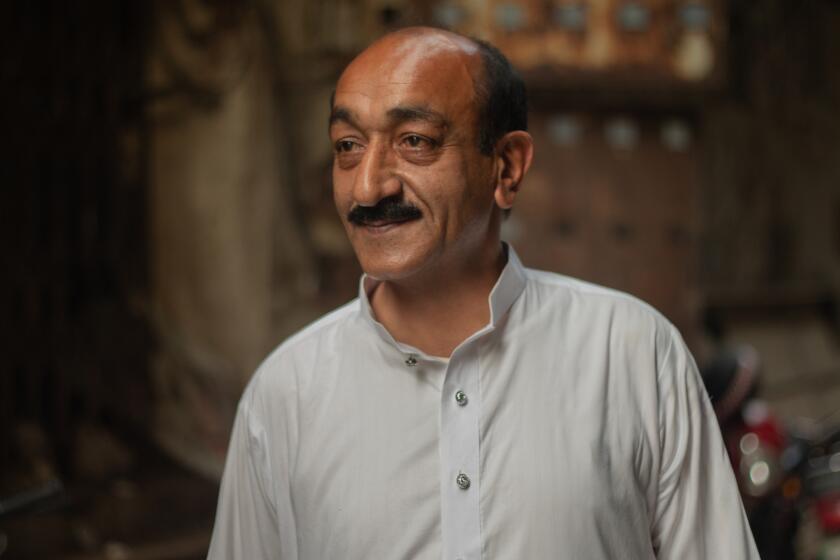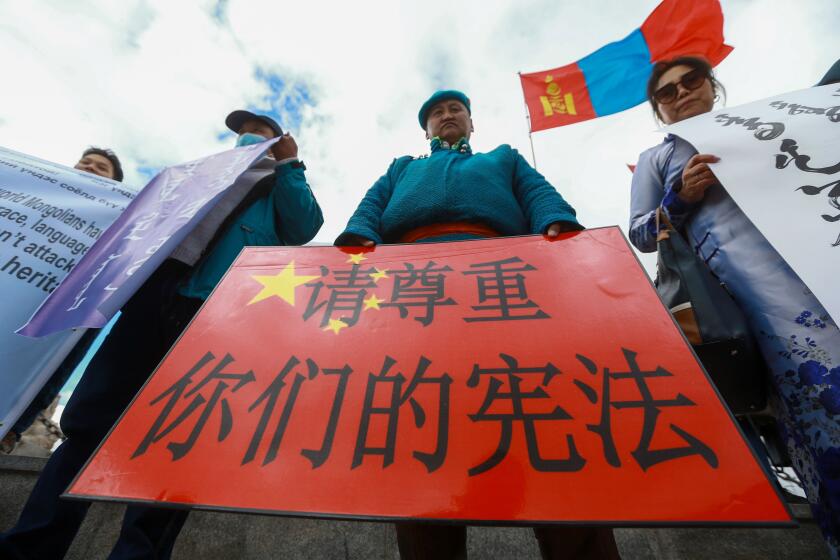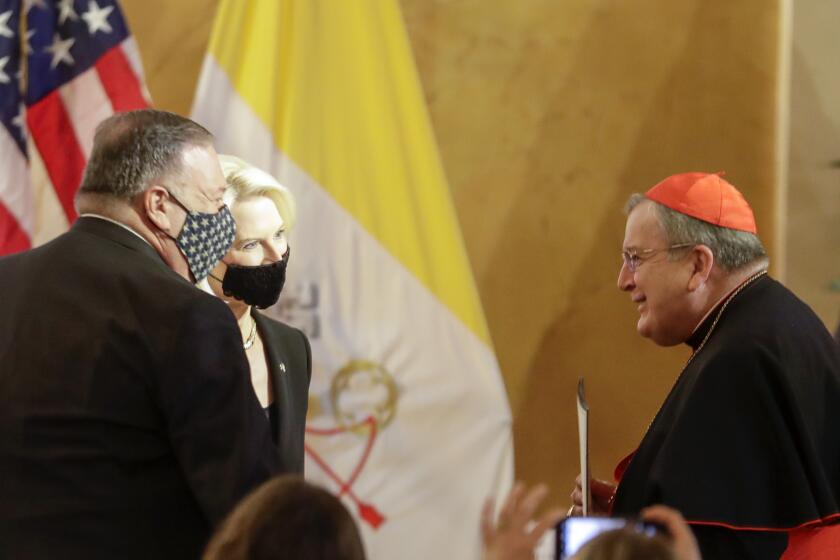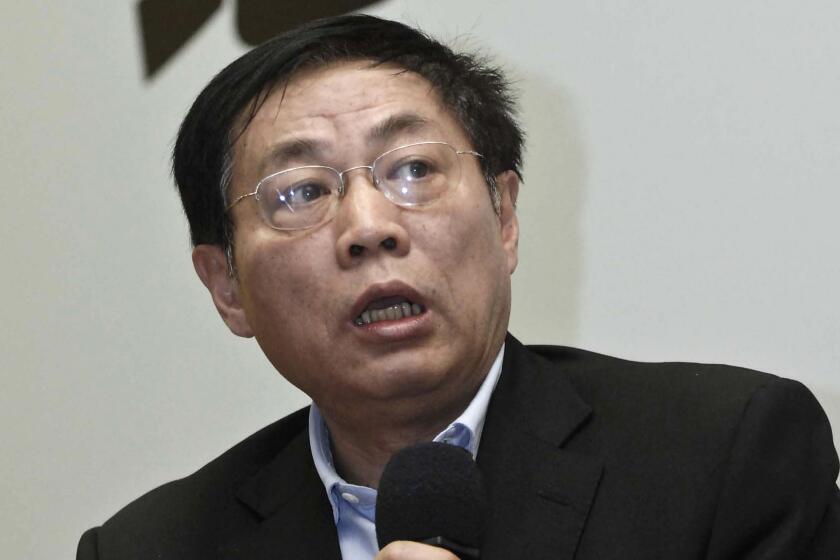U.S., Australia, India and Japan discuss China’s growing power
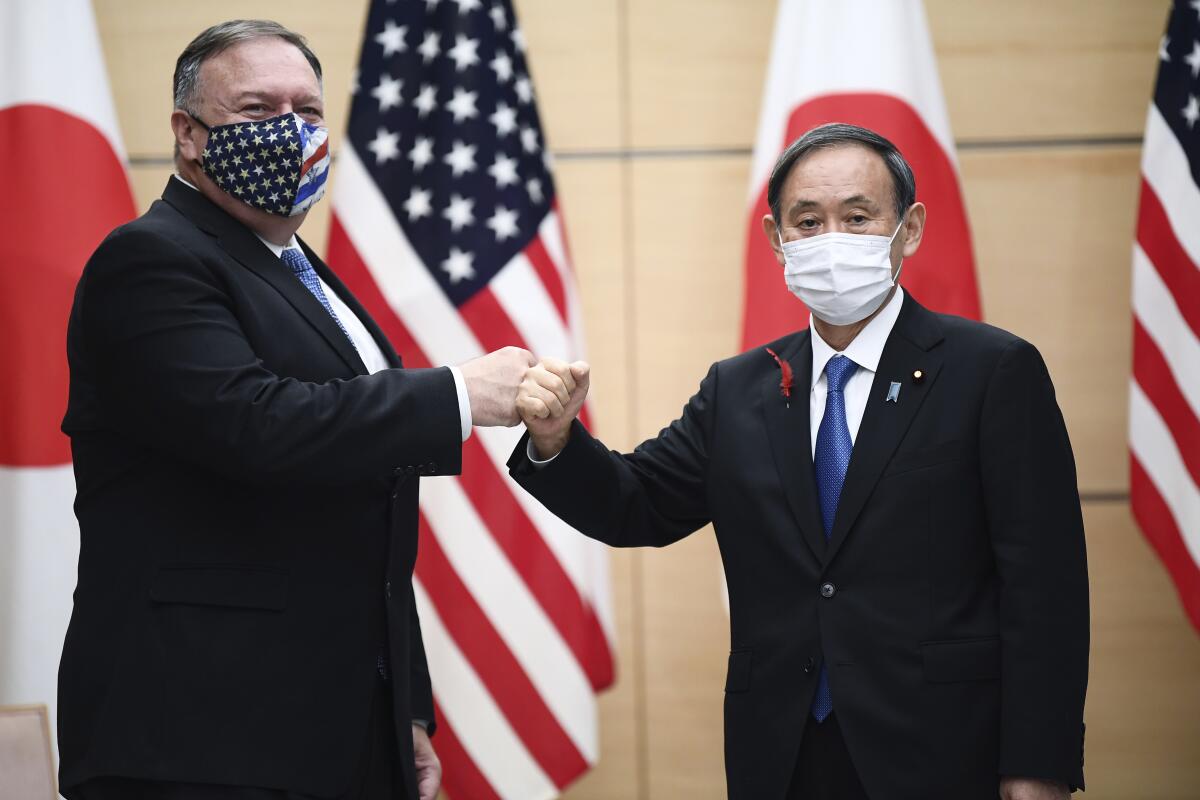
TOKYO — U.S. Secretary of State Michael R. Pompeo said Tuesday that China’s increasingly assertive actions across the region make it more critical than ever for four Indo-Pacific nations known as the Quad to cooperate to protect their partners and their people from Chinese “exploitation, corruption and coercion.”
Pompeo made the remark at a meeting in Tokyo with the foreign ministers of Japan, India and Australia, who together make up the Quad. The talks were the group’s first in-person meeting since the COVID-19 pandemic began.
Pompeo accused China of covering up the pandemic and worsening it, while threatening freedom, democracy and diversity in the region with its increasingly assertive actions.
“It is more critical now than ever that we collaborate to protect our people and partners from the Chinese Communist Party’s exploitation, corruption and coercion,” Pompeo said. “We see in the East and South China Seas. The Mekong, the Himalayas, the Taiwan Strait. These are just a few examples.”
The talks came weeks before the U.S. presidential election and amid tensions between Washington and Beijing over the coronavirus, trade, technology, Hong Kong, Taiwan and human rights. They follow a recent flareup in tensions between China and India over their disputed Himalayan border, while relations between Australia and China have also deteriorated in recent months.
Japan, meanwhile, is concerned about China’s claim to the Japanese-controlled Senkaku Islands, called Diaoyu in China, in the East China Sea. Japan also considers China’s growing military activity to be a security threat. Japan’s annual defense policy paper in July accused China of unilaterally changing the status quo in the South China Sea, where it has built and militarized manmade islands and is assertively pressing its claim to virtually all of the sea’s key fisheries and waterways.
China’s ‘purification’ of classrooms: A new law erases history, silences teachers and rewrites books
China’s crackdown on Hong Kong is purging teachers, rewriting textbooks and increasing pressure on schools over what to put in the minds of students. A new national security law has endangered freedom of thought and expression.
China has denied allegations of covering up the pandemic, saying it acted quickly to provide information to the World Health Organization and the world. It says the U.S. is the biggest aggressor in the South China Sea. Beijing also denies human rights violations in its handling of Hong Kong and minority Muslims in Xinjiang, and accuses Western nations of meddling in its internal affairs.
Earlier Tuesday, new Japanese Prime Minister Yoshihide Suga said in a meeting with the Quad diplomats that their “Free and Open Indo-Pacific” security and economic initiative is more important than ever amid challenges from the COVID-19 pandemic.
The international community faces multiple challenges as it tries to resolve the pandemic, and “this is exactly why right now it is time that we should further deepen coordination with as many countries as possible that share our vision,” Suga said, without directly criticizing China.
Suga took office on Sept. 16, vowing to carry on predecessor Shinzo Abe’s hawkish security and diplomatic stance. Abe was a key driving force behind promoting the FOIP initiative, which Suga called “a vision of peace and prosperity of this region” and pledged to pursue.
China’s oppression of Muslims reaches beyond Xinjiang into Pakistan. Why does it stay quiet?
Japan and the U.S. have been pushing the FOIP as a way to bring together “like-minded” countries that share concerns about China’s growing assertiveness and influence.
Pompeo, as well as Australian Foreign Minister Marise Payne, Indian Minister of External Affairs Subrahmanyam Jaishankar, and their Japanese counterpart, Toshimitsu Motegi, held talks after meeting Suga together.
Pompeo earlier met one-on-one with his three counterparts, meetings in which according to the State Department reaffirmed the importance of cooperating among them to advance peace, prosperity and security in the Indo-Pacific.
Pompeo in his talks with Payne shared concerns about “China’s malign activity in the region,” while agreeing on the importance of the Quad discussions for “the promotion of peace, security and prosperity in the Indo-Pacific,” according to the State Department.
China’s forceful implementation of a new language policy in Inner Mongolia has drawn criticism, even from the Communist Party elite.
Motegi held a working lunch with Pompeo in which the Japanese minister said he expressed hope that Japan and the U.S. will lead the international community to achieve the FOIP.
Pompeo attended the Quad meeting, but canceled subsequent planned visits to South Korea and Mongolia after President Trump was hospitalized with COVID-19. The president was released Monday and returned to the White House.
Pompeo was the only one who explicitly criticized China in opening remarks at the Quad meeting. Others used more nuanced language to describe the significance of promoting the concept of the FOIP as an inclusive, rule-based, democratic order that respects territorial sovereignty and peaceful resolution of disputes, rather than making allegations against China.
Pompeo made the appeal at a conference on religious freedom organized by the U.S. Embassy to the Holy See, with top Vatican officials in the audience.
Motegi said after the talks that the Quad members agreed to meet regularly and cooperate in infrastructure building, maritime security, cybersecurity and other areas, and exchange views on the situation in regional seas. Motegi said he proposed to other ministers that the Quad should broaden its cooperation with other countries.
But each Quad member has its own political stance toward China and it would be difficult to agree on concrete steps even though they share a perception of China as a common threat, analysts say.
Suga, who had been chief Cabinet secretary under Abe, told Japanese media Monday that he would pursue diplomacy based on the Japan-U.S. alliance as a cornerstone and “strategically promote the FOIP,” while establishing stable relations with neighbors including China and Russia.
The former chairman of a state-owned company who publicly criticized China’s president has been sentenced to 18 years in prison on corruption charges.
He said he also plans to promote the FOIP during a planned visit to Southeast Asia later this month.
Japan sees the FOIP as crucial for assuring access to sea lanes all the way to Middle East, a key source of oil for the resource-poor island nation.
Suga has little experience in diplomacy. Balancing between the U.S., Japan’s main security ally, and China, its top trading partner, will be tough, analysts say.
More to Read
Sign up for Essential California
The most important California stories and recommendations in your inbox every morning.
You may occasionally receive promotional content from the Los Angeles Times.
